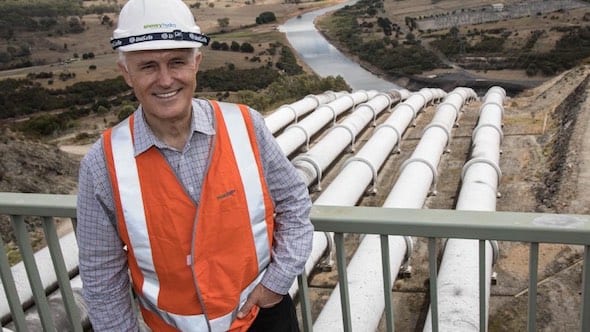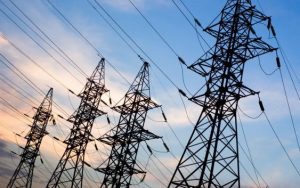Former prime minister and now strong renewables advocate Malcolm Turnbull has slammed the current leadership of the federal Coalition over its support for nuclear power and for the party’s continuing denial of climate science.
“The fact is I don’t have any ideological objection to nuclear,” Turnbull said in a panel session at the Australian Clean Energy Summit in Sydney on Wednesday.
“But the reality is, it will not stack up in this country. It just won’t and everybody in the energy industry knows that. It is the most expensive for former primary generation without any question …. and the reality is we don’t need it here.”
Turnbull’s comments came after the latest GenCost report from the CSIRO and the Australian Energy Market Operator again painted nuclear as by far the most expensive new energy option in Australia, even considering storage and transmission costs.
Opposition leader Peter Dutton, however, has been pushing the nuclear barrow, supported by most of the prominent leaders in the federal Coalition, which has now turned vigorously anti-renewable.
“It is bonkers, isn’t it,” Turnbull said. “The guy who is the most stupid about it, the most stupid of the lot is Peter Dutton. I’m not saying he’s a stupid person. But he says stupid things.
“He says keeps on saying we need nuclear power to firm renewables. If you want to firm renewables, variable renewables, you need something that is flexible, so you need a battery or a gas speaker can do it, you turn it on and off.
You can use pumped hydro. A nuclear power station is exactly what you don’t need to firm renewables.”
Turnbull’s reign as prime minister was most notable – in the energy space at least – for his advocacy and commitment to the controversial Snowy 2.0 pumped hydro project, which has suffered huge delays and a massive cost blowout.
Turnbull admitted that it has not gone well, but he blamed a lack of transparency from the now federal government owned utility, Snowy Hydro, that is in charge of the project.
“Snowy Hydro has not done a good enough job at basically telling its story,” Turnbull said.
“I think the company has essentially been held back by its political masters, to be honest. They’ve had one big problem with a tunnel boring machine getting stuck. But this happens with big civil projects.
“Most civil projects run over budget, and over time. They’re complex. And to be surprised that a project like that encounters some difficulties would be very naive.”
He insisted it remained a valuable project.
“It is a unique opportunity … it is it is a gigantic battery on any global terms. So it’s a very special case. I think it’s going to be an enormous asset.
“And what they (Snowy Hydro) have to do now is just, you know, keep going and get it finished but I think … the company was freer to tell a story, and to be more transparent, and with projects like this you build trust with truth and transparency.”
Turnbull also lamented the “crazy sort of climate denying element” in the LNP and in the right wing media, particularly the Rupert Murdoch media. “It still exists and to some extent it is getting crazier,” he said.
“The physical reality of climate change, global warming is one that’s increasingly hard to deny. Saying you believe or disbelieve in global warming is like saying you believe or disbelieve in gravity. Its physics is indifferent to your state of mind.”
The federal Coalition has come in for some withering criticism from politicians and others at the conference. Federal climate and energy minister Chris Bowen also took pot-shots at Dutton, and current and former Nationals leaders David Littleproud and Barnaby Joyce
But the most succinct put down came from ACT climate and energy minister Shane Rattenbury. Asked on a separate panel on Wednesday to name a person who had made the most outstanding contribution to the clean energy transition, Rattenbury replied: “It’s not Angus Taylor.”
Taylor, the current Opposition Treasury spokesman, was energy minister under former prime minister Scott Morrison.
Taylor’s departure and the emergence of Bowen has been heralded by all state and territory energy ministers as a galvanising force in efforts to accelerate the switch to renewables, even if it still faces challenges to reach the current targets, and more ambitious goals urged by scientists and environmental groups.







